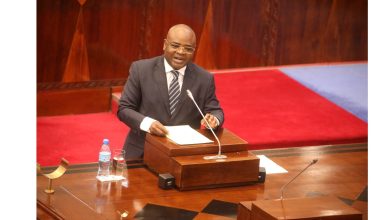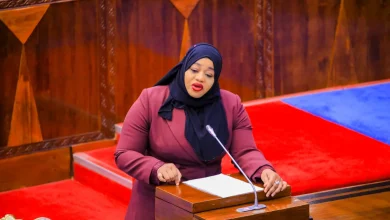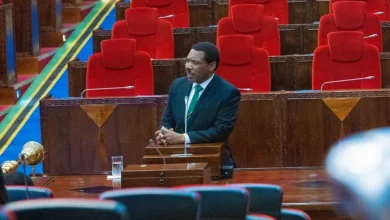How 12th Parliament bridged continuity, change

DODOMA: THE 12th Parliament concluded yesterday, leaving behind a legacy of historic moments that will long resonate in the memories of Tanzanians.
It will go down in history as the Parliament that oversaw a period of rapid infrastructure expansion, inclusive socioeconomic development and strengthened governance and judicial systems, all under vigilant legislative oversight. These accomplishments have laid a solid foundation for Tanzania’s future growth.
Like its predecessors, the 12th Parliament actively supervised government plans, scrutinised national budgets and held ministers accountable through robust parliamentary questioning.
President Samia Suluhu Hassan formally dissolved the 12th Parliament yesterday, setting the stage for the October General Election. The concluded Parliament was inaugurated following the October 2020 polls, where the ruling Chama Cha Mapinduzi (CCM) secured a landslide victory.
Uniquely, this Parliament was addressed by two different presidents during its tenure: the late Dr John Magufuli of the fifth phase government and President Samia Suluhu Hassan of the sixth phase administration.
Dr Magufuli officially inaugurated the Parliament on November 13, 2020, following his re-election. However, after his untimely passing just five months later, Vice-President Samia Suluhu Hassan ascended to the presidency in accordance with the Constitution. She addressed the Parliament on April 22, 2021, becoming the first woman to hold the highest office in the country.
Dr Magufuli had outlined a focus on industrialisation, infrastructure development, education and healthcare. President Samia pledged to continue all projects initiated by her predecessor while initiating new ones, demonstrating a forwardlooking approach to meet evolving national needs.
Under her leadership, most major national projects have been implemented successfully, supported by budget approvals from the 12th Parliament. These include strategic investments in energy, transport and education.
A defining moment in the 12th Parliament was the historic resignation of Speaker Job Ndugai on January 6, 2022 the first Speaker in Tanzanian history to voluntarily step down. He was succeeded by Dr Tulia Ackson, then Deputy Speaker, who was elected to the position on February 1, 2022.
Dr Tulia became the second woman to serve as Speaker of the National Assembly after Ms Anne Makinda (2010– 2015). She was later joined in the Parliamentary leadership by Mr Mussa Azzan Zungu, who was elected Deputy Speaker on October 4, 2022. Dr Tulia’s ascent from Deputy Speaker to Speaker illustrates the dynamic leadership within the law-making body.
Internationally, the 12th Parliament also marked a milestone when Dr Tulia was elected President of the InterParliamentary Union (IPU) in October 2023 the global organisation of national parliaments.
The Parliament also supported Dr Faustine Ndugulile, then Member of Parliament for Kigamboni, in his successful election as World Health Organisations (WHO) Regional Director for Africa in August 2024. However, following his untimely passing in November 2024, Dr Ndugulile was succeeded by Professor Mohamed Janabi in May 2025.
One of the 12th Parliament crowning achievements was the completion of the National Development Vision 2025 a 25-year strategic blueprint approved in 2000. This vision guided the country’s socioeconomic transformation and supported major infrastructure projects such as the Julius Nyerere Hydropower Project (JNHPP), the Standard Gauge Railway (SGR) ushering in Tanzania’s first electric and the JP Magufuli Bridge, all of which boosted energy production and national connectivity.
The vision also advanced social services in education, healthcare, transport, and communication, playing a significant role in poverty reduction.
Notably, just last Thursday, the government tabled the draft of the National Development Vision 2025–2050 for its first reading in Parliament a significant move in charting Tanzania’s next development phase.
This new vision aims to foster value addition, local innovation, entrepreneurship, and inclusive growth. It also emphasises integrating research and development (R&D) with industrial growth and strengthening value chains to empower small businesses.
The 12th Parliament was composed of 393 Members of Parliament. Of these, 364 were from the ruling party, CCM, while 29 represented opposition parties. The composition included 264 members elected from constituencies, 5 representatives from the Zanzibar House of Representatives, 113 appointed to special seats, 10 presidential appointees, and the Attorney General, who served as an ex-officio member.
During its tenure, MPs submitted 5,204 primary questions and 16,000 supplementary questions, all answered by the government. Additionally, 220 questions were addressed directly by Prime Minister Kassim Majaliwa.
The 12th Parliament was a time of profound political transition and institutional development. It witnessed leadership changes, including the resignation of Speaker Ndugai and the rise of Dr Tulia, while reinforcing parliamentary oversight and driving forward key national agendas.






Hey! Do you use Twitter? I’d like to follow you if that would be okay. I’m undoubtedly enjoying your blog and look forward to new posts.
Wonderful website. A lot of useful information here. I am sending it to some buddies ans also sharing in delicious. And naturally, thanks on your sweat!